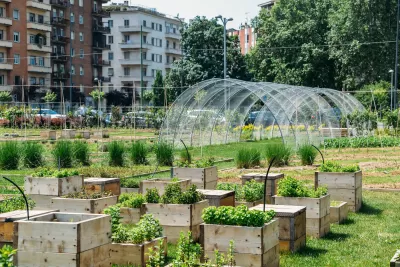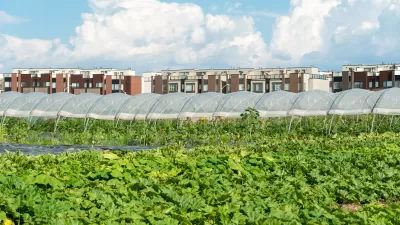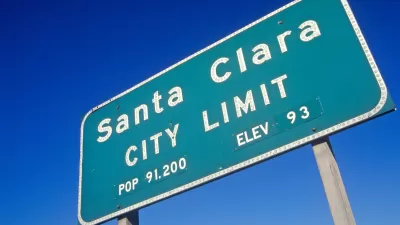Researchers looked at the carbon footprint of urban farming versus conventional, and the results were surprising.

Gardeners across the country are pushing back after recent findings from a study out of the University of Michigan suggested urban farming is less climate-friendly than conventional farming. “The research landed as cities including Detroit, Philadelphia, and Washington, DC, increasingly invest in urban agriculture to promote sustainability and become more resilient to the climate crisis,” reports Catherine Boudreau for Business Insider.
According to the study, fruits and vegetables grown on urban farms have on average six times the carbon footprint of produce from conventional farms. Critics of the study say its narrow focus on carbon emissions “overlooked the broader environmental harms of industrial-scale farming such as biodiversity loss and water pollution.” They are “worried the study would let conventional agriculture — which globally accounts for about one-third of greenhouse-gas emissions — off the hook and undermine a burgeoning movement to expand urban green spaces and promote food sovereignty,” Boudreau writes.
Researchers acknowledge that, while urban agriculture has myriad social benefits and 17 out of the 73 urban farms their team studied across the world did have lower footprints than conventional farms, the infrastructure used to build them and the crops grown on them make a difference. According to Business Insider, the research has led some urban gardeners to reevaluate their practices and incorporate a few of the best practices outlined in the study.
FULL STORY: Gardeners are fuming about a study that found produce from urban farms has a high carbon footprint

Planetizen Federal Action Tracker
A weekly monitor of how Trump’s orders and actions are impacting planners and planning in America.

Congressman Proposes Bill to Rename DC Metro “Trump Train”
The Make Autorail Great Again Act would withhold federal funding to the system until the Washington Metropolitan Area Transit Authority (WMATA), rebrands as the Washington Metropolitan Authority for Greater Access (WMAGA).

The Simple Legislative Tool Transforming Vacant Downtowns
In California, Michigan and Georgia, an easy win is bringing dollars — and delight — back to city centers.

The States Losing Rural Delivery Rooms at an Alarming Pace
In some states, as few as 9% of rural hospitals still deliver babies. As a result, rising pre-term births, no adequate pre-term care and harrowing close calls are a growing reality.

The Small South Asian Republic Going all in on EVs
Thanks to one simple policy change less than five years ago, 65% of new cars in this Himalayan country are now electric.

DC Backpedals on Bike Lane Protection, Swaps Barriers for Paint
Citing aesthetic concerns, the city is removing the concrete barriers and flexposts that once separated Arizona Avenue cyclists from motor vehicles.
Urban Design for Planners 1: Software Tools
This six-course series explores essential urban design concepts using open source software and equips planners with the tools they need to participate fully in the urban design process.
Planning for Universal Design
Learn the tools for implementing Universal Design in planning regulations.
Smith Gee Studio
City of Charlotte
City of Camden Redevelopment Agency
City of Astoria
Transportation Research & Education Center (TREC) at Portland State University
US High Speed Rail Association
City of Camden Redevelopment Agency
Municipality of Princeton (NJ)





























